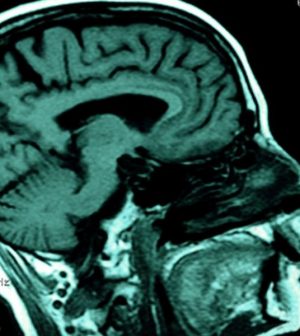- Could Your Grocery Store Meat Be Causing Recurring UTIs?
- Are You Making This Expensive Thermostat Error This Winter?
- Recognizing the Signs of Hypothyroidism
- 10 Strategies to Overcome Insomnia
- Could Artificial Sweeteners Be Aging the Brain Faster?
- Techniques for Soothing Your Nervous System
- Does the Water in Your House Smell Funny? Here’s Why
- Can a Daily Dose of Apple Cider Vinegar Actually Aid Weight Loss?
- 6 Health Beverages That Can Actually Spike Your Blood Sugar
- Treatment Options for Social Anxiety Disorder
The Focus Shifts in Alzheimer’s Research

The way that Alzheimer’s disease is defined for research should be based on brain changes rather than symptoms.
That’s what leading Alzheimer’s scientists are proposing in what could be a major policy change for investigating the brain-robbing illness.
“We have to focus on biological or physical targets to zero in on potential treatments for Alzheimer’s,” explained Dr. Eliezer Masliah, who directs the division of neuroscience at the U.S. National Institute of Aging (NIA), a partner in the new Research Framework guidelines.
One Alzheimer’s specialist agreed.
The proposed move “is as groundbreaking as using cholesterol levels to identify risk for heart disease, rather than waiting for a heart attack or chest pain to begin treatment,” reasoned Dr. Gaytri Devi. He’s a neurologist at Lenox Hill Hospital in New York City.
For example, pre-symptomatic signs of Alzheimer’s disease that can appear on neurological scans include tissue atrophy or amyloid protein plaques or tau protein “tangles” that are seen to be building up in the brain.
By shifting the research focus away from memory loss and other Alzheimer’s symptoms, and towards these types of brain changes, “I think we have a better shot at finding therapies, and sooner,” Masliah added in an NIA news release.
According to the Alzheimer’s Association, 5.7 million Americans are now living with the illness, which is progressive and has no effective treatment. U.S. Alzheimer’s cases are expected to rise to 14 million by 2050, the association said.
Why the shift in focus away from symptoms and toward brain alterations?
Call it a sense of urgency.
The scientists behind the new report note that, until recently, there were clinical trials of treatments for Alzheimer’s disease in which up to one-third of symptomatic participants did not have the particular disease-related brain changes targeted by the experimental drug being tested.
“With the aging of the global population, and the ever-escalating cost of care for people with dementia, new methods are desperately needed to improve the process of therapy development and increase the likelihood of success,” report co-author Maria Carrillo, chief science officer at the Alzheimer’s Association, said in an association news release.
The Research Framework team noted that a focus on the neurobiology of Alzheimer’s, rather than outward symptoms, “is in line with [research into] most chronic diseases that are defined biologically, with clinical symptoms [only] being a consequence” of illness.
For instance, bone mineral density, high blood pressure, high cholesterol and diabetes are already defined by so-called “biomarkers” — changes in the underlying biology of the organs or structures involved.
Therapies that target these biomarkers directly have been shown to reduce the risk of fractures, heart attacks and strokes, the experts noted.
Moving the focus of research to pre-symptomatic brain changes should also further research into ways to prevent Alzheimer’s, they said.
The new definition — which needs to be confirmed in different groups of people worldwide — would help speed and improve the development of treatments for Alzheimer’s disease, said report first author Dr. Clifford Jack Jr., of the Mayo Clinic in Rochester, Minn.
Dr. Maria Torroella Carney is chief of geriatric and palliative medicine at Northwell Health in New Hyde Park, N.Y. She wasn’t involved in the new report, but agreed that its proposals should accelerate research.
Carney stressed, however, that the move would not affect how Alzheimer’s is “staged” and tackled by physicians who are caring for patients.
Instead, the new proposals are “a research framework — it really is an opportunity to create a prevention of disease strategy through early interventions,” she said.
The new report is published April 10 in Alzheimer’s & Dementia: The Journal of the Alzheimer’s Association.
More information
The U.S. National Institute on Aging has more about Alzheimer’s disease and related dementias.
Source: HealthDay
Copyright © 2026 HealthDay. All rights reserved.










